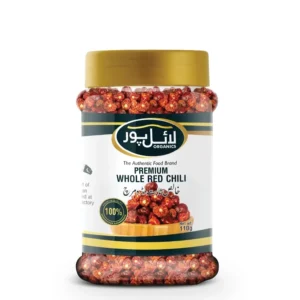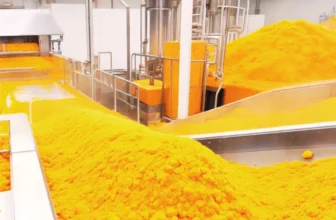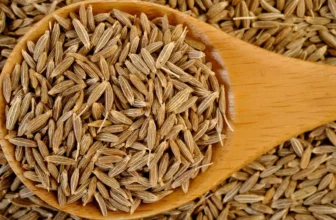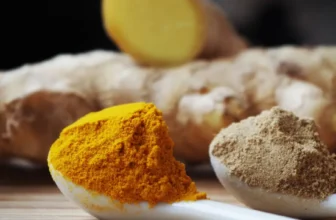A Complete Guide to Red Chili Paste
Chili pastes of Red Chili are an essential ingredient in many cuisines around the world, adding depth, flavor, and signature heat to a wide range of dishes. From the fiery kick of a spicy condiment to the subtle complexity of a fermented chili paste, these versatile ingredients can elevate any meal. In this comprehensive guide, we will explore the diverse world of red chili paste, their history, variations, and culinary uses, ensuring you have all the information you need to spice up your cooking.
Table of Contents
The History of Red Chili Paste
The use of chili pastes dates back thousands of years, with evidence of their existence in ancient cultures across the globe. The early inhabitants of the Americas were among the first to cultivate chili peppers, which they used to create pepper pastes for both culinary and medicinal purposes. As trade routes expanded, chili peppers and their derivatives, including hot pepper pastes, spread to Asia, Africa, and Europe, each region adapting and integrating these fiery ingredients into their own culinary traditions.
In Asia, chili paste has become a staple in many cuisines. For example, Korean gochujang, a sweet and spicy fermented chili paste, is a cornerstone of Korean cooking, used in dishes like bibimbap and tteok bokki. Similarly, Thai chili paste, known as nam prik pao, adds a distinctive flavor to many Thai dishes.
Varieties of Red Chili Paste
Chili pastes come in a multitude of varieties, each with its own unique flavor profile and culinary application. Here are some of the most popular types:
Korean Gochujang
Gochujang is a fermented chilli paste made from red chili powder, glutinous rice, fermented soybeans, and salt. It has a rich, umami flavor with a balanced heat, making it perfect for marinades, soups, and stir-fries.
Thai Chili Paste (Nam Prik Pao)
Nam Prik Pao is a sweet, savory, and slightly smoky Thai chili paste made from dried chili peppers, garlic, shallots, tamarind, and shrimp paste. It is often used as a condiment, in stir-fries, or to flavor soups.
Szechuan Chili Paste
Szechuan chili paste, also known as Sichuan chili paste, is a spicy and numbing pepper paste made with Szechuan peppercorns, chili peppers, garlic, and oil. It is a key ingredient in many Sichuan dishes, including map tofu and dan noodles.
Harissa
Harissa is a North African chili paste made from roasted red peppers, hot chili peppers, garlic, olive oil, and spices like cumin and coriander. It has a smoky, spicy flavor and is used in soups, stews, and as a condiment.
Mexican Chili Paste
Mexican chili paste, often made from dried chilies such as ancho, guajillo, and chipotle, is used to add depth and heat to traditional Mexican dishes like mole, tamales, and enchiladas.
Indian Chili Paste
In Indian cuisine, chili pastes are often made from fresh or dried red chilies, garlic, ginger, and spices. These pastes are used in curries and marinades and to add heat to a variety of dishes.
Garlic Chili Paste
Garlic chili paste combines the bold flavors of garlic and chili peppers into a versatile condiment that can be used in stir-fries, dips, and as a topping for noodles and rice dishes.
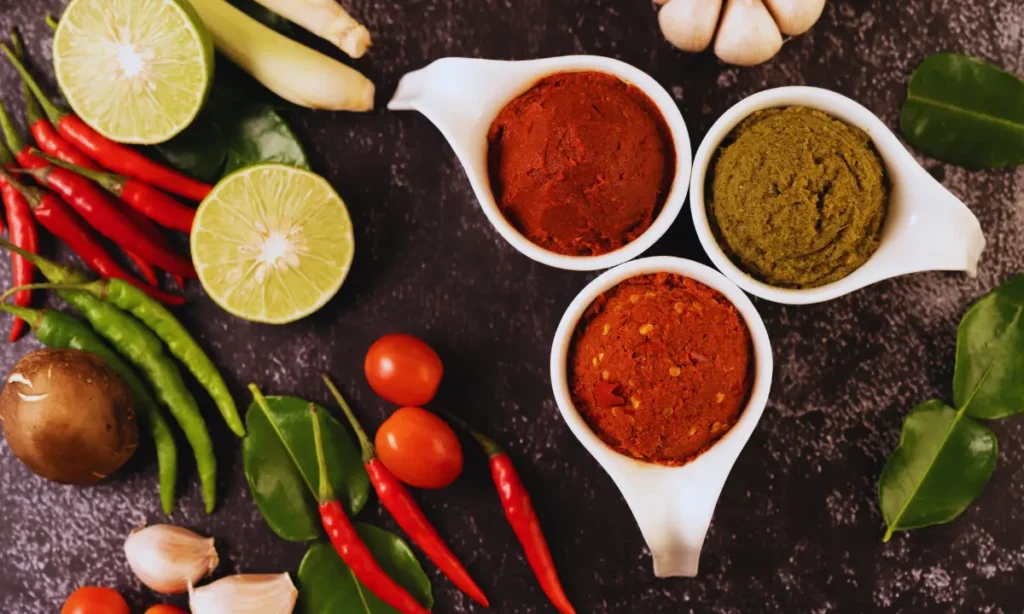
Making Your Own Red Chili Paste
Creating your own chili paste at home is a rewarding and customizable process. Here are some basic steps to make a simple chili paste:
Ingredients
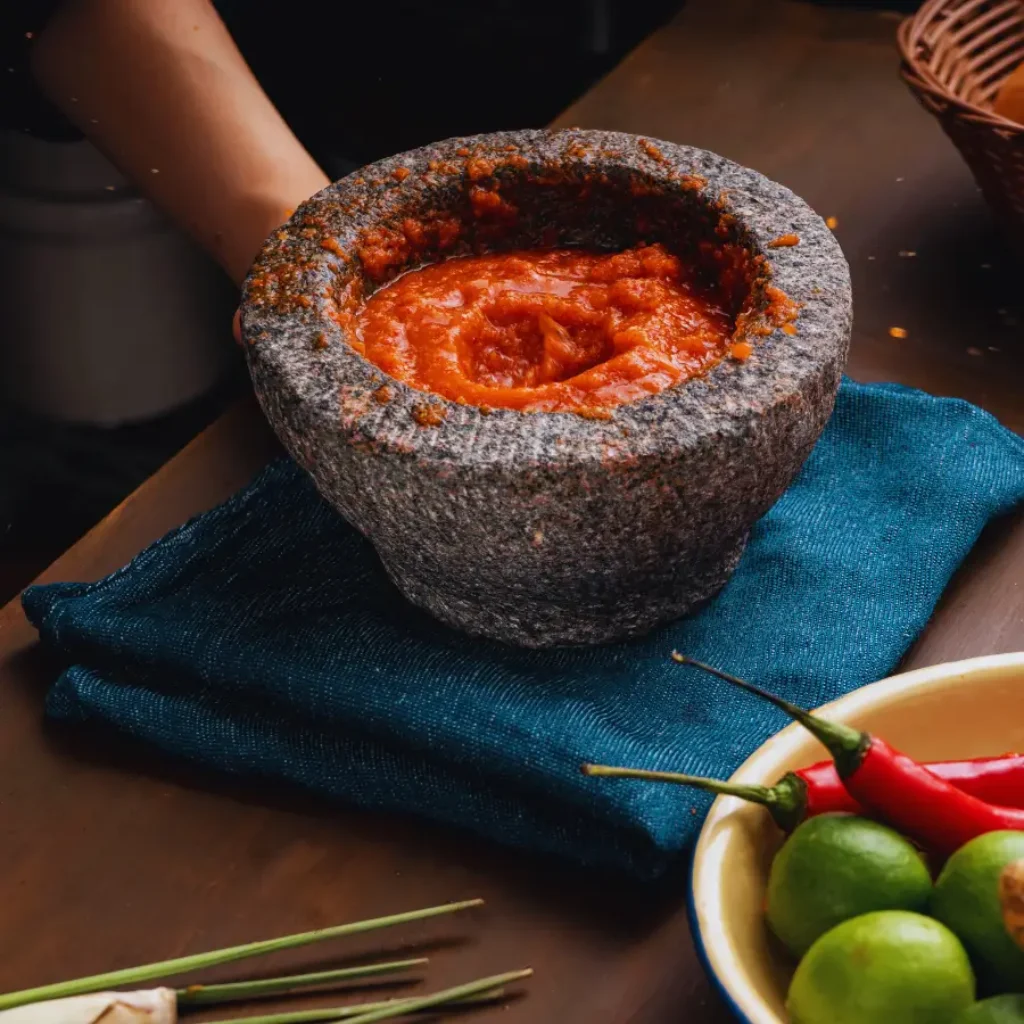
- 1 cup dried red chili peppers
- 3 cloves garlic
- 1/4 cup olive oil
- 1 tablespoon salt
- 1 tablespoon vinegar
Instructions
- Soak the Chili Peppers: Place the dried chili peppers in a bowl and cover with hot water. Let them soak for about 30 minutes until they are soft.
- Blend the Ingredients: Drain the chili peppers and place them in a blender along with the garlic, olive oil, salt, and vinegar. Blend until smooth.
- Cook the Paste: Transfer the blended mixture to a saucepan and cook over medium heat for about 10 minutes, stirring occasionally, until the paste thickens.
- Store: Let the paste cool, then transfer it to a clean jar. Store in the refrigerator for up to a month.
Culinary Uses of Red Chili Paste
Chili pastes are incredibly versatile and can be used in various ways to enhance your dishes:
Marinades
Use chili pastes to marinate meats, seafood, and tofu. The paste not only adds heat but also imparts a depth of flavor, making your grilled, roasted, or stir-fried dishes more delicious.
Soups and Stews
A spoonful of chili paste can transform a bland soup or stew into a rich and flavorful meal. Thai chili paste, for instance, is often added to tom yum soup for its signature heat and complexity.
Stir-Fries
Add chili pastes to your stir-fries for an instant flavor boost. Szechuan chili paste works particularly well in stir-fries with vegetables, meats, or tofu.
Condiments
Chili paste can be served as a condiment alongside dishes like rice, noodles, and bread. Harissa is commonly used in North African cuisine.
Dips and Spreads
Mix chili paste with yogurt, mayonnaise, or cream cheese to create a spicy dip or spread for vegetables, chips, or bread.
Health Benefits of Red Chili Paste
Chili pastes are not only delicious but also offer several health benefits:
Rich in Vitamins and Minerals
Chili peppers, the main ingredient in most chili pastes, are high in vitamins A and C, which are essential for immune function, skin health, and eye health.
Boosts Metabolism
Capsaicin, the compound that gives chili peppers their heat, has been shown to boost metabolism and aid in weight loss.
Anti-Inflammatory Properties
Capsaicin also has anti-inflammatory properties, which can help reduce pain and inflammation in the body.
Antioxidant Benefits
Chili peppers are rich in antioxidants, which help protect the body against damage from free radicals.
Heart Health
Regular consumption of chili peppers has been linked to improved heart health, including lower cholesterol levels and reduced risk of heart disease.
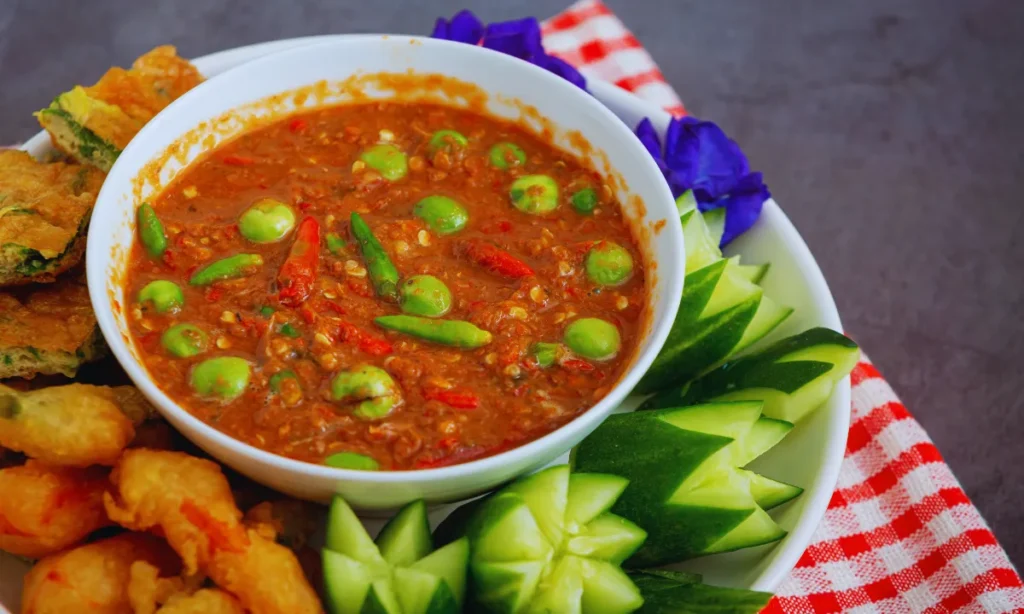
Conclusion
Chili pastes are an indispensable ingredient in many kitchens around the world. Whether you prefer the smoky heat of Mexican chili paste, the complex flavors of Korean gochujang, or the spicy tang of Thai chili paste, there is a chili paste to suit every palate. By understanding the different varieties and how to use them, you can unlock new dimensions of flavor in your cooking. So, why not experiment with making your own chili paste at home and discover the joys of this versatile and flavorful ingredient.
Other Top Products
-
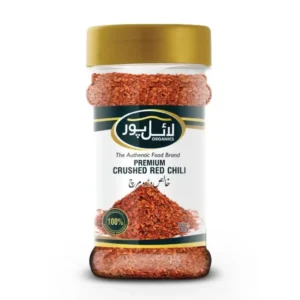 Premium Crushed Red Chili (Crushed Lal Mirch, Darra Mirch) – 100% Natural & Pure | Super Spicy Flavour & Vibrant Color | Best Price in Pakistan₨ 219.00 – ₨ 780.00Price range: ₨ 219.00 through ₨ 780.00★★★★★
Premium Crushed Red Chili (Crushed Lal Mirch, Darra Mirch) – 100% Natural & Pure | Super Spicy Flavour & Vibrant Color | Best Price in Pakistan₨ 219.00 – ₨ 780.00Price range: ₨ 219.00 through ₨ 780.00★★★★★ -
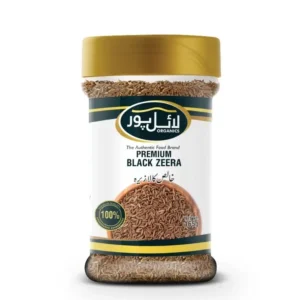 Premium Black Cumin (Kala Zeera) – 100% Natural Organic & Pure | Intense Flavour & Rich Aroma | Best Price in Pakistan₨ 373.00 – ₨ 860.00Price range: ₨ 373.00 through ₨ 860.00★★★★★
Premium Black Cumin (Kala Zeera) – 100% Natural Organic & Pure | Intense Flavour & Rich Aroma | Best Price in Pakistan₨ 373.00 – ₨ 860.00Price range: ₨ 373.00 through ₨ 860.00★★★★★ -
 Premium Kishmish (Raisin) Sundarkhani – 100% Natural Organic & Pure | Rich in Nutrients & Sweet Flavour | Best Price in Pakistan₨ 281.00 – ₨ 410.00Price range: ₨ 281.00 through ₨ 410.00
Premium Kishmish (Raisin) Sundarkhani – 100% Natural Organic & Pure | Rich in Nutrients & Sweet Flavour | Best Price in Pakistan₨ 281.00 – ₨ 410.00Price range: ₨ 281.00 through ₨ 410.00 -
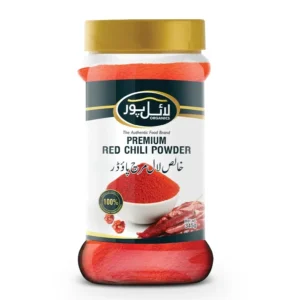 Premium Red Chili Powder (Lal Mirch Powder) – 100% Natural & Pure | Hot Spicy Flavour & Vibrant Color | Best Price in Pakistan₨ 200.00 – ₨ 1,015.00Price range: ₨ 200.00 through ₨ 1,015.00
Premium Red Chili Powder (Lal Mirch Powder) – 100% Natural & Pure | Hot Spicy Flavour & Vibrant Color | Best Price in Pakistan₨ 200.00 – ₨ 1,015.00Price range: ₨ 200.00 through ₨ 1,015.00 -
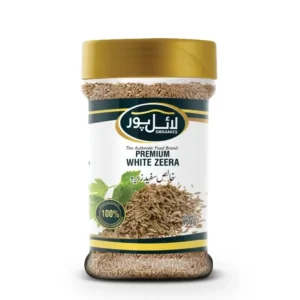 Premium White Cumin (Safaid Zeera) – 100% Natural Organic & Pure | Delicate Flavour & Rich Aroma | Best Price in Pakistan₨ 280.00 – ₨ 624.00Price range: ₨ 280.00 through ₨ 624.00
Premium White Cumin (Safaid Zeera) – 100% Natural Organic & Pure | Delicate Flavour & Rich Aroma | Best Price in Pakistan₨ 280.00 – ₨ 624.00Price range: ₨ 280.00 through ₨ 624.00 -
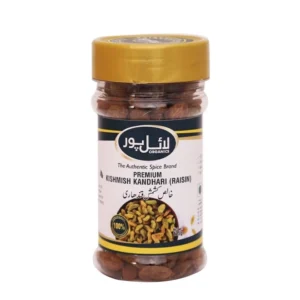 Premium Kishmish (Raisin) Kandhari – 100% Natural & Pure | Rich in Nutrients & Sweet Flavour | Best Price in Pakistan₨ 200.00 – ₨ 260.00Price range: ₨ 200.00 through ₨ 260.00
Premium Kishmish (Raisin) Kandhari – 100% Natural & Pure | Rich in Nutrients & Sweet Flavour | Best Price in Pakistan₨ 200.00 – ₨ 260.00Price range: ₨ 200.00 through ₨ 260.00

